Kolkata flyover collapse: How a tragedy brought a city together
- Published
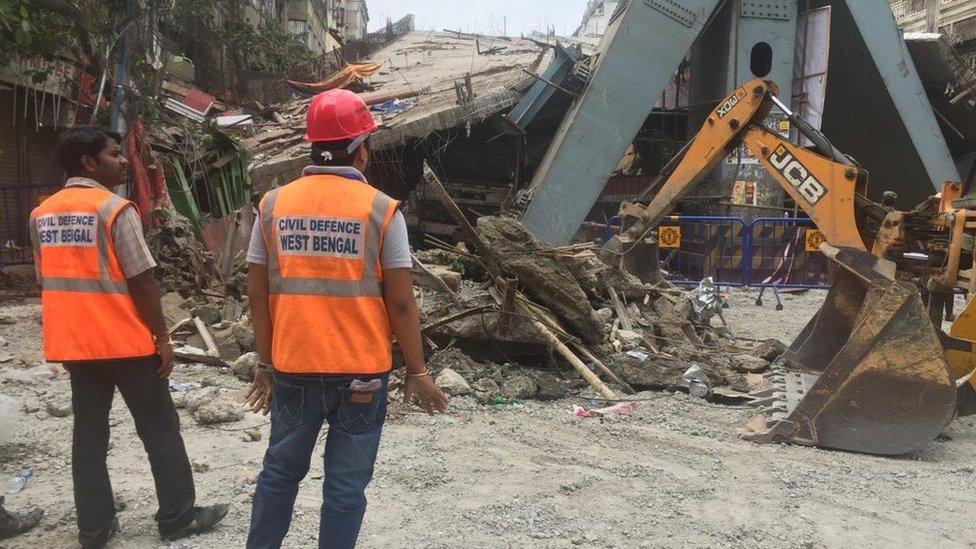
Rescuers worked through the night in the Girish Park area, where the bypass collapsed, killing at least 24 people and injuring hundreds
At around 8am (02:30GMT) this morning, specialist rescue workers in the eastern Indian city of Kolkata (Calcutta) recovered what was to be the last body from a rubble of shattered concrete and the tangle of steel.
It marked the end of an epic 36-hour rescue operation after the collapse of an under-construction flyover in the city.
Rescuers worked through the night in the Girish Park area, where the bypass collapsed, killing at least 24 people and injuring hundreds.
The exhaustion of their exertions was written in the faces of the rescue workers. Their uniforms were dusty and their hair was matted with sweat as they sat, shoulders slumped, on girders and mounds of rubble around the site.
What had been an effort to save survivors and recover bodies became something much simpler: a clean-up job.
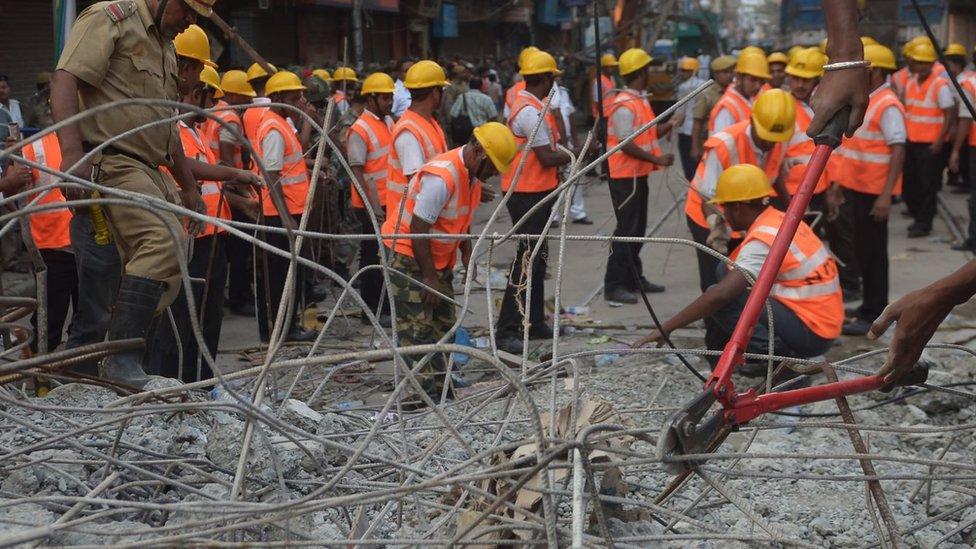
The rescue operation lasted for 36 hours
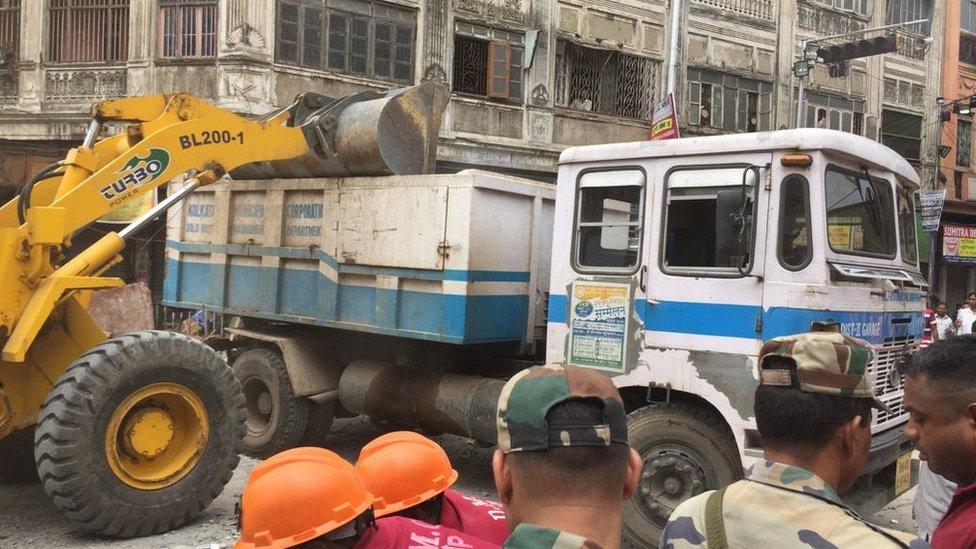
"What had been an effort to save survivors and recover bodies became something much simpler: a clean up job"
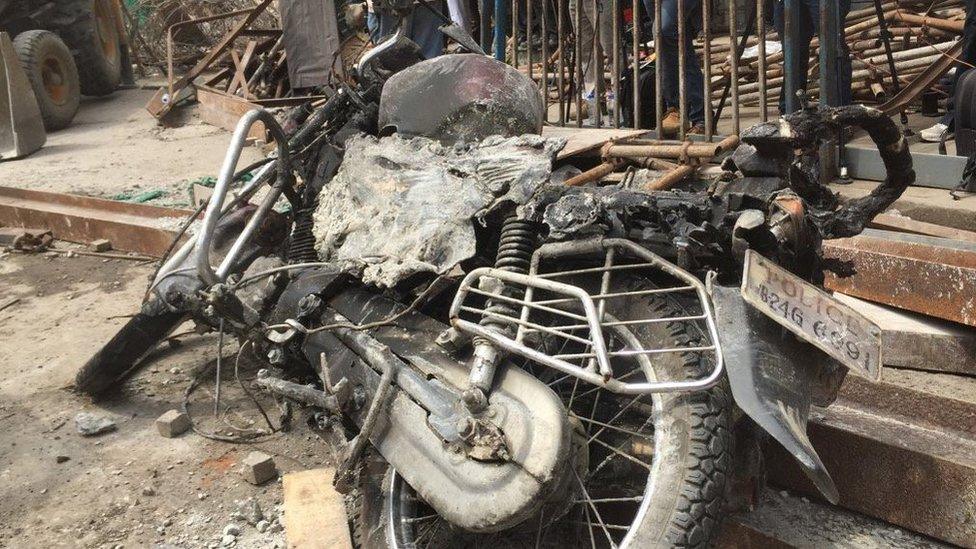
"All around was evidence of the scale of the tragedy"
In came the mechanical diggers, hefting great loads of debris onto the backs of battered trucks.
This would normally be one of the busiest parts of one of India's busiest cities and all around was evidence of the scale of the tragedy: a twisted and burnt motorcycle, the shattered remains of an auto-rickshaw, a discarded handbag and - amongst the wreckage - tattered banners of flapping fabric.
Volunteers handed out clay cups of hot sweet tea to rescue workers and gawkers alike.
Terrible disaster
There was still a buzz of curious excitement among those gathered to watch the operation, but the atmosphere was slowly and subtly beginning to change.
As the urgency and adrenaline that had sustained people during the long night began to drain away, it was replaced by growing anger.
The people straining at the security barriers erected to protect the site wanted to know why what should have been a fairly straightforward construction project ended in such terrible disaster.
They were asking whether the company building the overpass had been cutting corners. Was it rushing to finish the much-delayed project because of pressure from the state government? Why was a company that had been blacklisted by a number of Indian states still involved in the first place?
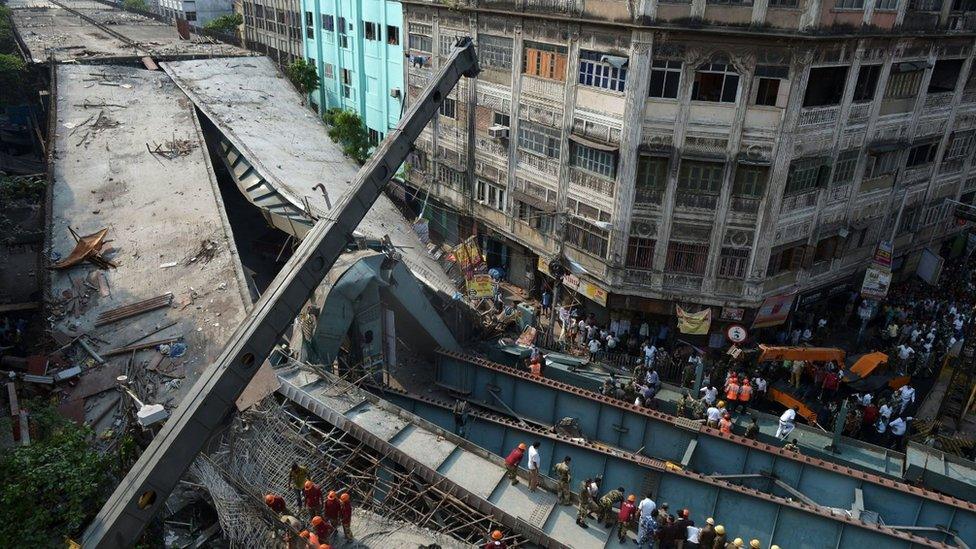
A section of the structure about 100m long fell suddenly on to traffic
Every now and then a senior military officer or a politician would sweep through to slowly inspect the site followed by crowds of camera crews and photographers.
The state elections are just days away and this disaster is a huge political issue, not just here in Bengal but across India.
The ugly spectacle of blame and recrimination has well and truly begun.
But great tragedies are the true test of a community. And Kolkata came up trumps.
The city came together in the wake of the disaster to offer solace and support.
Just as everyone's energy was flagging near noon on Friday, a group of Sikhs brought huge steaming pots of rice and dhal (lentils) and served it to whoever was hungry in plates made of pressed leaves.
Even in the darkest moments there is light.